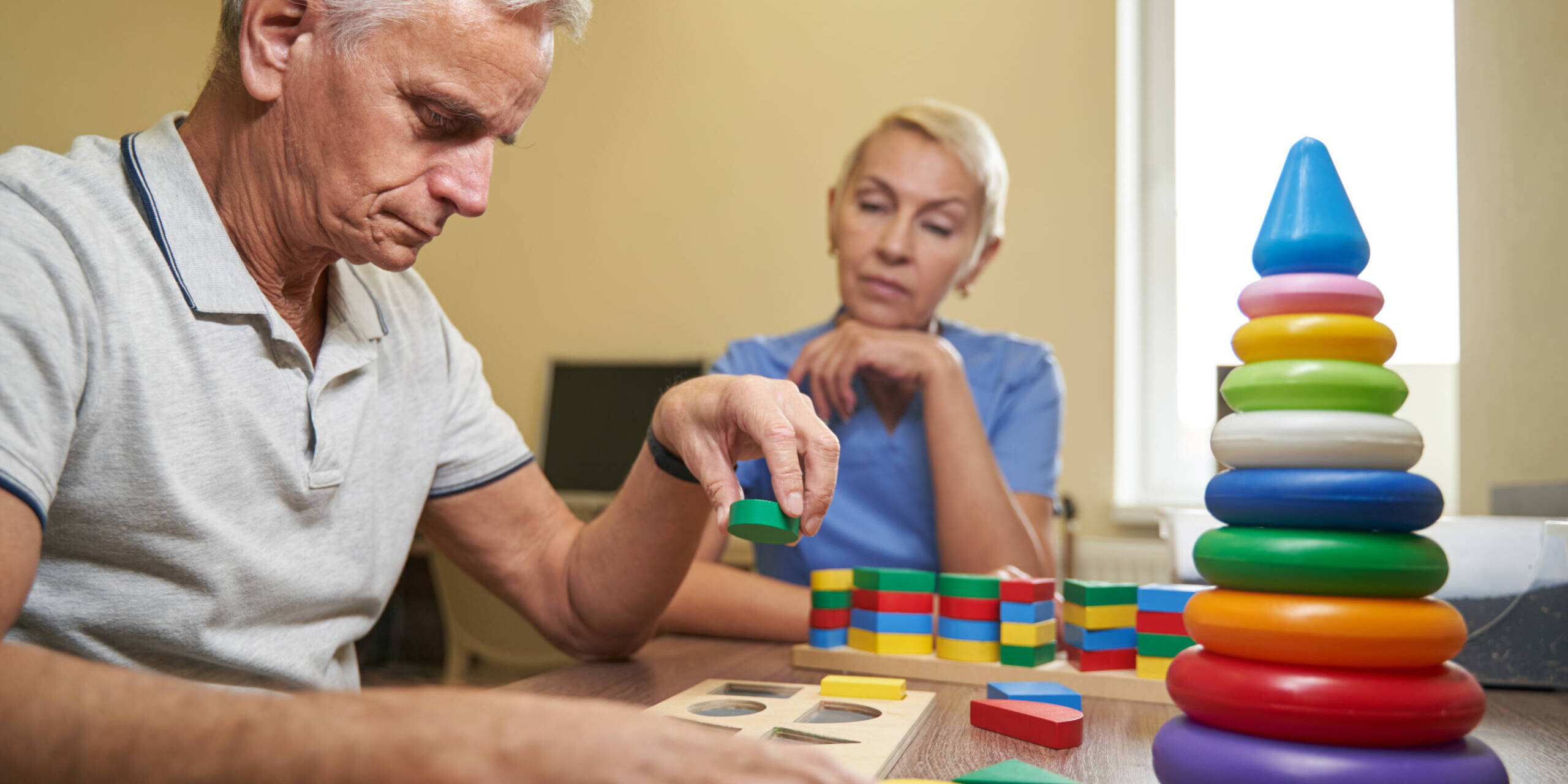Occupational Therapy and Mental Health Conditions
Can Occupational Therapy Help with Mental Health Conditions Such as Anxiety or Depression?
While mental disorders and psychiatric conditions like depression and anxiety are frequently treated with prescription medications, the patterns and habits that are left behind can be difficult to break. When psychological symptoms begin to interfere with activities of daily living (ADLs), some patients are finding help in unexpected places.
People today might associate occupational therapy (OT) with the treatment of childhood developmental disorders or stroke rehabilitation, but the field first emerged in 1918 in response to the number of World War I soldiers returning with serious mental health disorders.
The goal then was the same as it is now: to help individuals facing physical and/or mental obstacles resume healthy lifestyles and regain independence in their homes, workplaces and communities.
OT Services for Mental Health
As an essential member of a psychiatric mental health team, OTs and OT assistants (OTAs) conduct comprehensive assessments that are crucial for creating personalized treatment plans. These interviews and tests often encompass multiple aspects of the patient’s life, including their physical abilities, cognitive functioning, emotional well-being and social skills.
Practitioners might assess a patient’s capacity to perform daily living activities, such as cooking or personal hygiene, evaluate their workplace skills and personal hobbies or interests and administer cognitive assessments to understand a patient’s memory, attention and problem-solving capabilities.
These detailed screening tools not only help identify areas of strength and challenge, but also guide the development of interventions and therapy goals so clients are able to lead more fulfilling and independent lives.
OT services frequently include cognitive-behavioral strategies to manage stress and anxiety, as well as life skills training to enhance independence and self-confidence and vocational support to facilitate meaningful engagement in work. OTs may recommend sensory integration therapy for those experiencing sensory processing difficulties or leisure therapy to promote enjoyment and satisfaction in free time.
Helping Patients Create Meaningful Change
Mental health services offered by OTs are designed to empower individuals to lead fulfilling lives while helping to improve mental well-being and resilience. This could be as simple as incorporating regular walks, seeking sensory stimulation in container gardening or returning to a hobby the patient once enjoyed.
The key is to slowly build a sense of achievement and purpose by engaging individuals in meaningful tasks. By providing patients with practical skills and coping strategies, these therapy teams help those with mental health conditions not only manage their symptoms but rediscover joy and purpose.
In the case of depression or anxiety, patients might work on strategies to recognize dysregulated feelings and manage symptoms of stress. This could involve relaxation techniques, mindfulness or structured problem-solving approaches when basic tasks like personal hygiene, cooking or managing finances become overwhelming. By breaking these tasks down into manageable steps and working on them consistently, the therapist helps the individual regain confidence and healthy independence.
OT’s Expanding Role in Mental Health
The evolving role of OT in mental health reflects a broader understanding of mental disorders. OTs are now recognized as vital in addressing not just the physical aspects of these conditions, but also the psychological and social factors. They help bridge the gap between medical treatment and everyday life, offering strategies for patients to navigate the complexities of their conditions. This holistic approach is particularly beneficial in community settings where OTs work to reduce stigma and promote mental health awareness.
Start An Exciting Healthcare Career in Occupational Therapy
With a degree in occupational therapy, you’ll be uniquely trained to identify and minimize physical and mental barriers that affect people of all ages. Graduates of our Occupational Therapy Assistant program play an essential role in facilitating holistic patient-centered care for a variety of physical and cognitive conditions, including anxiety and depression. To learn more about the degree programs offered at St. Louis College of Health Careers, call 866-529-2070 or contact us online.
